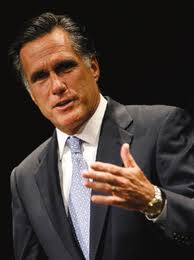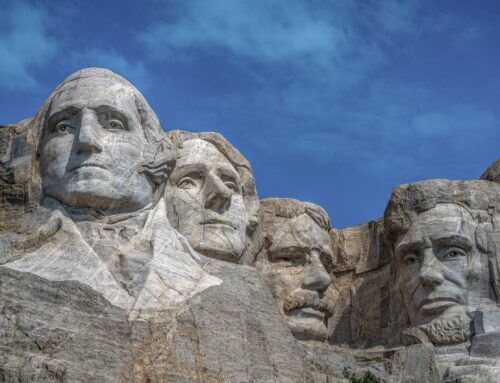
How are we to think about Mormonism? And how should a candidate’s worldview inform our vote? Here are five considerations that may help:
Avoid any attempt to distort a person’s faith.
Mormonism, like other religions, has extreme sects that do not represent the mainstream. Simply explore and evaluate the fundamental tenants of Mormonism without camping on various exaggerations of that faith tradition.
Recognize that Mormonism is not historical, biblical Christianity.
Mormonism holds to a distinct worldview, embraces a different source of authority, and views the nature and need of man, and the person and work of Jesus Christ very differently than biblical Christianity. Any attempt to call Mormonism a Christian faith is intellectually dishonest. Mormonism, like Hinduism, Buddhism, and Islam, is a false religion.
Identify the clear distinctives of various faith traditions.
As our culture marches toward secularism, there is a magnetic pull toward pluralism—the view that all religions are equally valid. Not only is that view unfortunate and inaccurate, but it discounts the thoughtful (even if misguided) devotion of followers. A Mormon, for example, is committed to his faith for important reasons. And out of respect for his devotion, we should discover how the tenants of his personal faith shape his worldview.
Frame the discussion of Mormonism for the public square.
In his daily briefing, Al Mohler reminds us that committed evangelicals may use and understand terms such as “cult” very differently than secularists or people outside of our faith. We understand the terms, but when we enter the public square we should frame the discussion and explain the terms in a way that will effectively communicate and engage a wider audience.
Allow the best candidate to earn your vote.
For 200 years, Americans have had the privilege of voting for our President. Many of those candidates affirmed in some degree a Judeo-Christian faith. Yet not all of them have promoted a culture of life or protected the sacred institution of marriage. At the end of the day, Christians are called to engage in the political process and select the candidate for public office who will advance an agenda most consistent with our biblical values. As long as humans are the only ones on the ballot, that selection will never be ideal. But as long as we have freedom, it’s vital that Christians make that choice.
As always, I would love your feedback. Click the “Comment” button below.





Daryl, I couldn’t agree with you more. The last several elections seem to have alwasy been about voting for the lesser of two evils. I believe this election is no different.
I certainly don’t embrace Mormonism or equate the tenants of Mormonism as a respected religion but prospects of 4 more years of killing unborn children, the further advancement of socialism, continued strangulation of our freedoms, including 1st, 2nd and 4th amendments leaves no choice. While the tenants of Mormonism is not acceptable, Mormon’s, as a whole, do embrace ife. As you suggest, we need to have and understand truth in order to make informed and sound decisions.
Thanks Phillip. When voting for humans, that’s the only kind of choice we will have. I do pray God will give favor to Jesus followers who engage in the public arena.
Thanks Dharper9165. Believers can rally around protecting life and advancing freedom. Blessings to you.